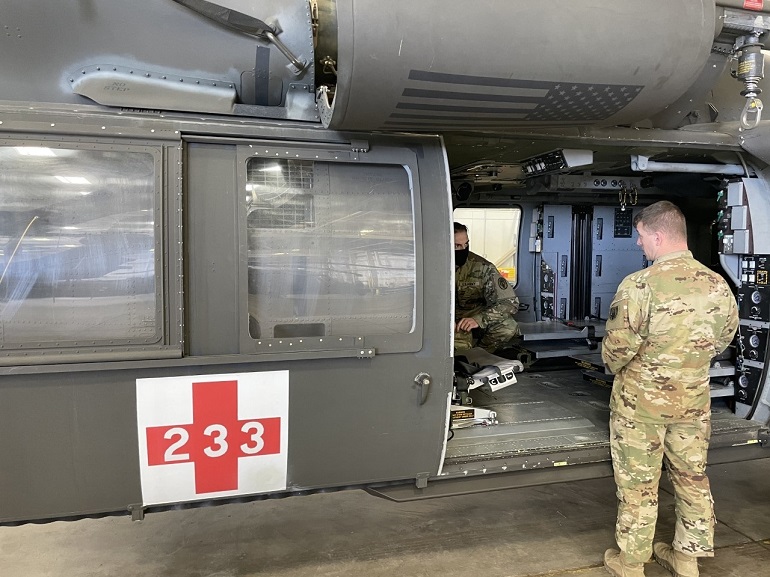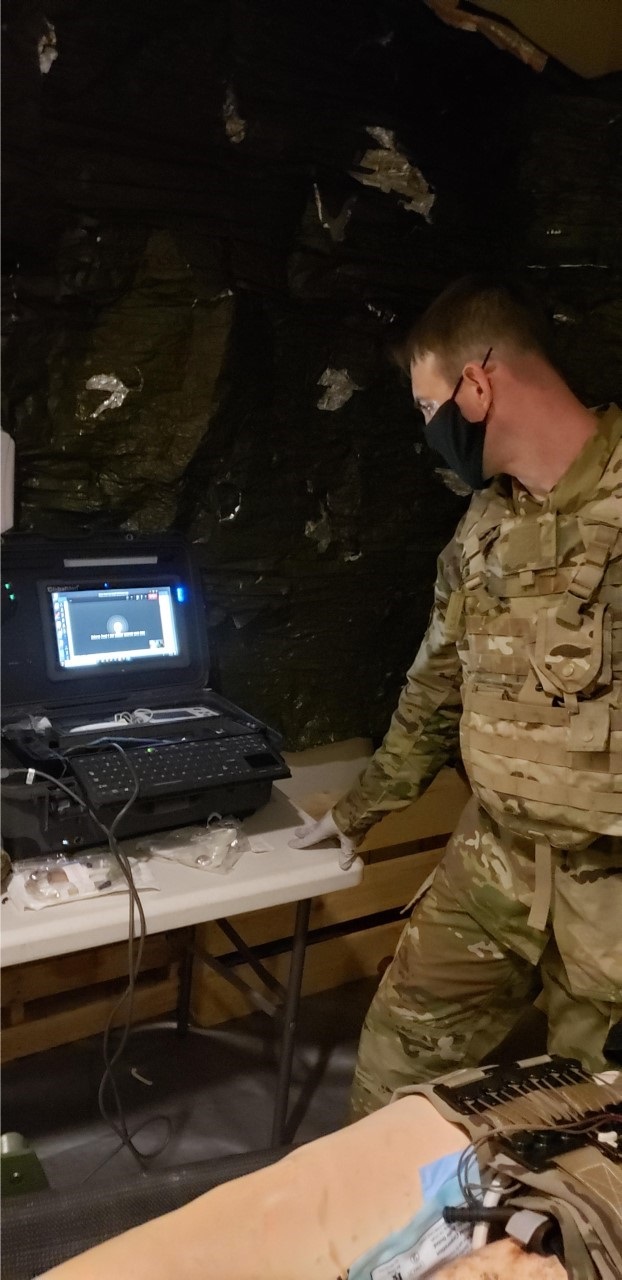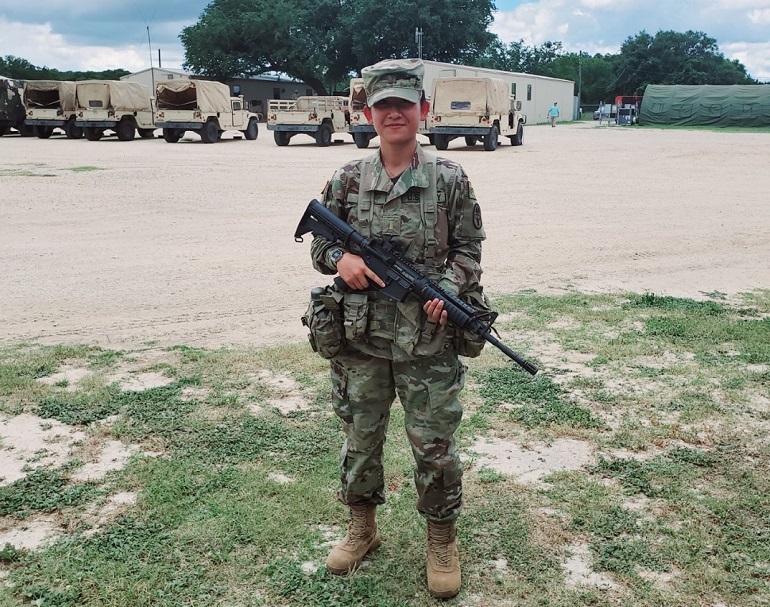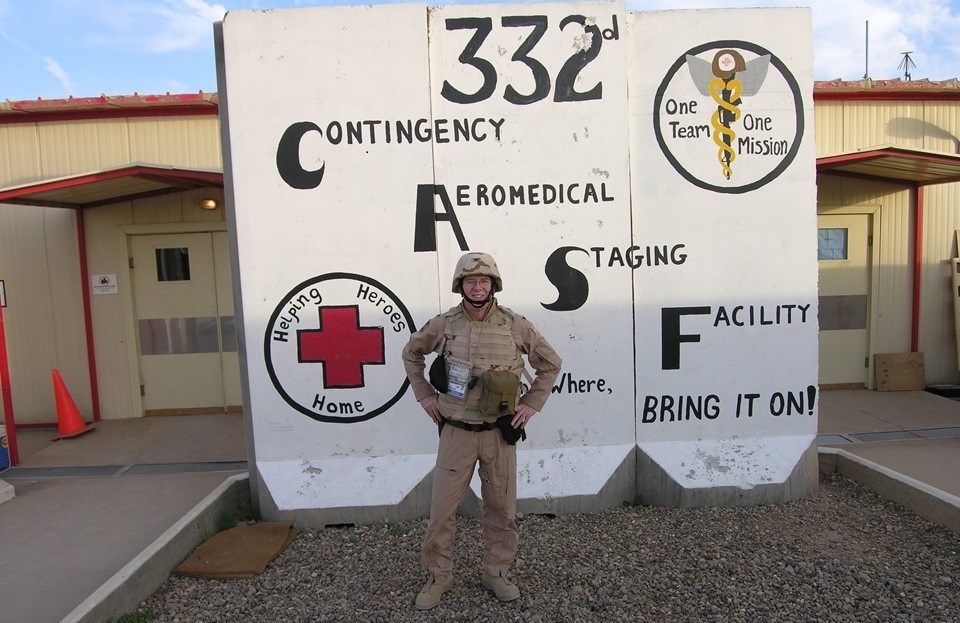
Benjamin Wright is a second-year medical student at Wayne State University. He’s also an active member of the U.S. Army Reserve, double duty that comes with more than a few challenges.
Wright isn’t alone. He is one of several students in the WSU School of Medicine juggling roles as former and active military service members. Wright is also president of the school’s Military Medicine Interest Group, and attends the School of Medicine as part of the U.S. Department of Defense’s Health Professions Scholarship Program.

Fourth-year student Nhu Do also was commissioned to the Army Reserve in 2018 as part of the HPSP. The second lieutenant is anticipating graduation in June 2022.
“When I first came to America (from Vietnam) 17 years ago, Detroit was my first home. I wanted to come back and serve the community that once helped my family,” she said.
HPSP covers civilian medical school tuition, pays for fees, provides a monthly living stipend and includes a signing bonus under certain conditions. The scholarship is offered by the Army, Navy and Air Force.
“I would like to complete residency training in Internal Medicine, and perhaps a fellowship thereafter. I would like to serve the men and women who sacrifice for our country, as well as their family members and the innocent civilians around the world, who may suffer from natural disasters or the costs of war,” Do said. “A little far from the present day, but when I do retire, I would like to travel the world and participate in as many medical missions as possible.”
She joined the Military Medicine Interest Group to connect with military physicians and learn how to incorporate their experience into her four years of medical education.
“The Military Match is also quite different from the civilian match, so it was helpful to hear from prior MS4s’ experience. The group also provides a sense of belonging for those who follow this special career pathway,” she said.

Like Do, Wright is a second lieutenant in the Army Reserve.
“As president of Military Medicine Interest Group, I believe it is important to be a part of this student organization regardless if a student is military or not. It has always been my hope to prepare all Wayne State students to be successful in their future endeavors. Whether this is through increasing trauma preparedness by attending our Military Medicine trauma sessions or through our support of HPSP students, we want Wayne State students to succeed,” Wright said. “As a student organization, our primary goal is to support our military students and help guide them throughout their careers. Whether these students are prior service veterans or current service members of the military’s Health Professions Scholarship Program, we want to be their advocates to the student body and administration.”

The Military Medicine Interest Group, or MMIG was officially recognized as a student organization by Wayne State University two years ago. The group is advised by School of Medicine Associate Professor of Pathology Arthur Eisenbrey, M.D., ’86, Ph.D. ’80, who is a retired colonel of the U.S. Air Force and Michigan Air National Guard reserves. He served 26 years.
“MMIG presents the role of the physicians in the uniformed services, their specialized training that is fairly unique, their career opportunities and the obligations carried by the HPSP awardees and other military medical professionals,” Dr. Eisenbrey said. “I consider my role as service to my alma mater and the students who followed me.”
Since last month, the organization has hosted a continuing series of lessons in trauma care. The course is designed to increase awareness of interventions used in trauma situations and help prepare students for emergencies. Students practice interventions such as intubation, needle decompression, chest tube insertion, surgical cricothyroidotomy, packing wounds and more.
Group members worked with staff at the WSU School of Medicine’s Kado Clinical Skills Center to provide hands-on practice. The group based its curriculum on the Advanced Trauma Life Support and Tactical Combat Casualty Care guidelines.
“Our objective for this course is to help familiarize students with trauma primary assessment and provide hands-on experience with many of the interventions. In our prior sessions, we have covered assessments, managing massive hemorrhage and basic airway management,” Wright said.
As a military member medical student, Wright, Do, and others like them, must balance the life of a physician-in-training and a service member.
“Some challenges include attendance of our mandatory 45-day training to learn soldiership and leadership once a year. Often this must be taken during times that are normally considered breaks for our students. While tiring, I believe this training provides a valuable resource to our students,” Wright said.
The Military Match is held in December, three months before the match for the majority of specialties for the nation’s fourth-year medical students.
“Students have less time to boost their resumes, so many students will front-load extracurriculars the first three years in order to be competitive,” Wright said.
Following completion of medical school, Wright will commission into active duty and complete his residency at a military installation. He will complete four years in the Army as part of the HPSP scholarship, and plans to complete a full career in the military.
The organization has several events slated for the coming months. All students are welcome.
“We are currently in the process of planning to host military medicine speakers, creating a military workout group and creating a guide to prepare military medical students for their careers,” Wright said. “We want to educate all medical students about military medicine. We want all students to know that even though they are not in the HPSP program, they are able to join the military following their residency.”
Follow @waynemilitarymedicine on Instagram to keep updated on event dates and details.